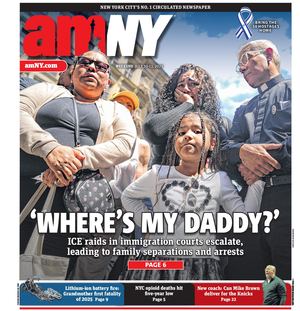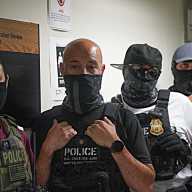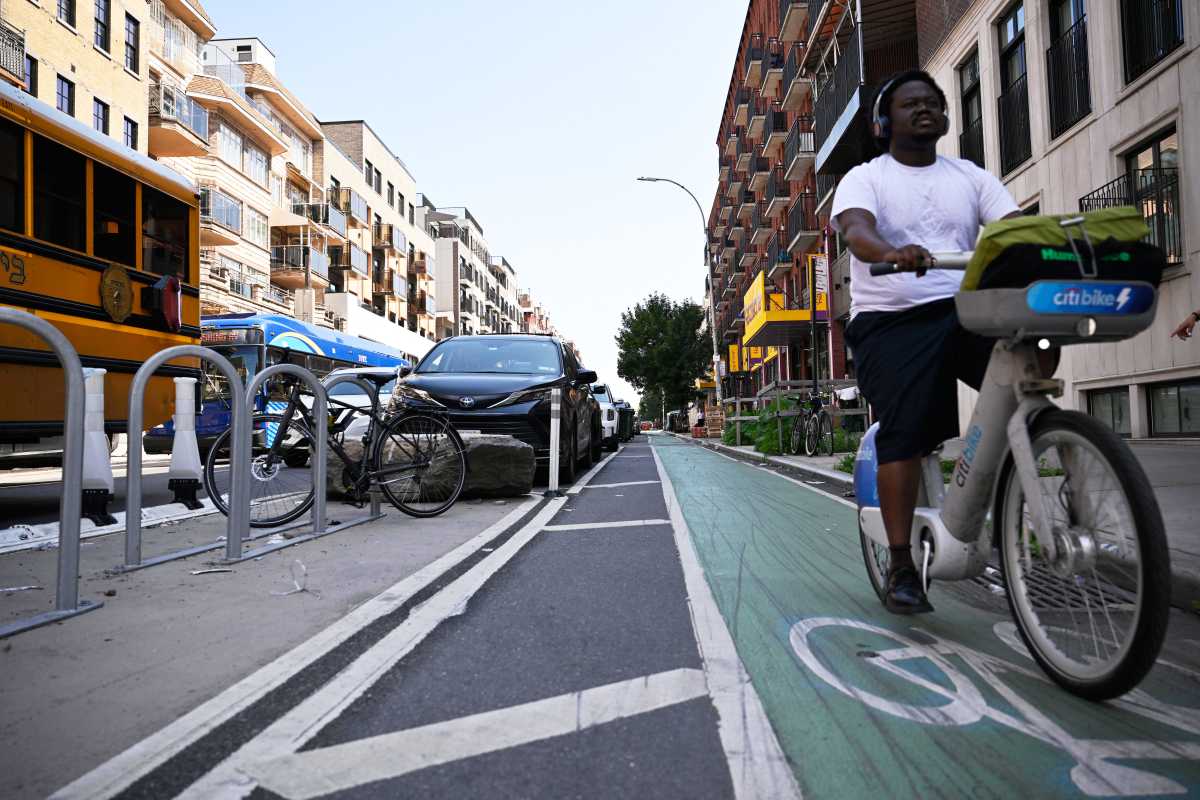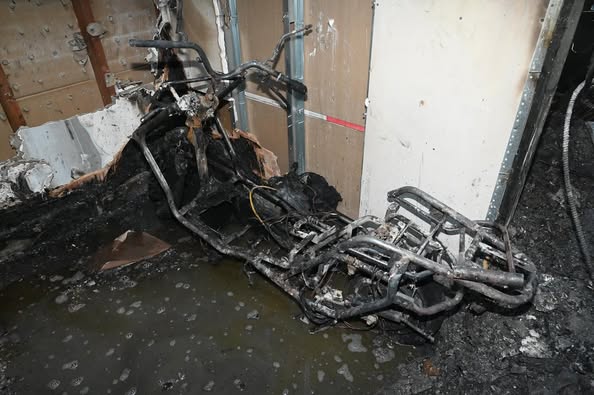By Laurie Mittelmann
Twenty-five years of feeling the love: L.G.B.T. Center is providing support and sustenance
Hunching over his yellow-highlighted, photocopied pages of “Psalms 105,” a discussion leader at the Lesbian, Gay, Bisexual and Transgender Community Center asked the eight middle-aged students — gathered in folding chairs around a small wooden table — about the purpose of Israel.
“Some people had to live in Israel,” said one man, widening his eyes and raising his hands. “They couldn’t live in any other country.”
As homosexuals, these students were not strangers to feelings of exile. They had come from as far as Queens, Staten Island and Upstate New York to read verses from the Bible and sip homemade punch.
“I call it the Grand Central Terminal of queer New York,” said Richard Burns, executive director of the center, where he’s worked since 1986 to fight for L.G.B.T. equality. Six thousand people, reflecting the diversity of the city in age, race and economic background, now pass through the center each week.
Meetings like this Bible-study session at The Center’s building on 13th St. near Seventh Ave. allow individuals to share ideas in an L.G.B.T.-friendly environment. Crosses dangled on chains around some of their necks as they leaned over the scripture.
“We live in an age where we can be gay, have gay friends and have a wonderful Center like this,” the discussion leader said.
Hundreds of organizations, espousing everything from the rights of L.G.B.T. African-Americans to those of gay and lesbian seniors, use the space to hold meetings and events. Each Monday, a half-hour before the Bible study, a small part of the New York City Gay Men’s Chorus starts warming up on the floor below.
On a recent evening, the chorus members present were those who would be singing at the upcoming Brooklyn Pride festival. One asked the chorus’s new artistic director from London, Charlie Beale, what they would wear at the event.
Beale pointed to a newly designed shirt held up by another man and said, “That, unless. … You were thinking something more formal or snazzy?”
It’s hard to say what the consensus on attire might have been — the men were dressed very differently for this rehearsal, some in button-down shirts with pressed collars, others in loose-fitting T-shirts or tank tops.
They crowded inside one of the 15 converted classrooms in the former Food and Maritime Trades High School, where even the hallways now provide space for L.G.B.T. expression, with rotating art exhibits.
The Center will celebrate the 25th anniversary of its incorporation on July 6. It all started back when gay, lesbian and transgender rights groups, mobilized by a police raid at the Stonewall Inn bar in the summer of 1969, began renting out rooms from the city, which eventually sold them the entire W. 13th St. building in December 1984.
Since then, generations of people coming out of the closet have received services, ranging from H.I.V. and AIDS counseling to help kicking nicotine addiction. The Center interviews L.G.B.T. community members and posts online surveys to ensure that it meets today’s changing needs.
Elden Tunchao, a volunteer at The Center, came from the predominantly Catholic Philippines to live in New York, where he now hands out fliers advertising events for gay youth. He wants to encourage them to use the support system he couldn’t find in his home country.
Sitting quietly on a bench with a folded newspaper on his lap and an empty bag at his side, he waited to collect the materials that he would soon distribute.
“Some of those kids don’t know about this place and the good things it does,” he said.
The Youth Enrichment Services program fosters healthy development of young adults with many activities, such as Aquariteam, a group that learns about fish and how to clean the neon-purple tank glowing in the lobby.
“We had a couple of fish die once and the kids had named them after themselves,” said Jenny DeBower, a 39-year-old from Brooklyn who directs the group and the entire youth services program. “So then we had to talk about death, and sing ‘Swing Low, Sweet Chariot’ as we walked down the hallway to flush them down the toilet.”
Red chairs and a sofa for two provide comfort for those who wait in the lobby to participate and make new friends. One recent afternoon, a boy fanned himself with a magazine about gay marriage and asked another, who sat down next to him, when he first realized that he was gay. The boy’s answer — two years — surprised him.
“Wow, I knew seven years ago,” he said.
Later, in the garden, the two shared a green plastic chair and kissed, hands cradling each others’ necks as other teens swarmed around them, yelling “Daaamn!” and “Oooh.”
“He liked him,” said one Colombian boy, 17, who moved to Queens four years ago and started coming last month to The Center, where he feels freer. He didn’t know any gay people in Colombia.
“My psychologist told me to come here,” he said. “I was depressed because I was basically surrounded by only straight people.”
The parents of another boy, who stood wrapping his arms around a tree, want to send him to a psychologist because he is gay. They threatened to send him back to the family’s home country of the Dominican Republic when he came out over Thanksgiving.
“Sorry, I get emotional when I talk about it,” he said, as he tightened his grip on the trunk. “They told me that they won’t visit in the hospital when I end up with AIDS.”
The kids have one thing besides their sexuality in common. Most lie to their parents when they come to The Center, claiming that they are staying after school for extra classes or work.
“I can’t tell them,” said an Islamic girl, 15, who said that she was “bi-curious” as she adjusted the earphones of her portable music player under her white scarf. Her parents adhere strictly to the religion whose God she believes will send her to hell.
Another girl with multiple Jesus necklaces and a bracelet depicting the different saints did not find acceptance in her Brooklyn neighborhood, but came out to her mom, despite the family’s religion, after meeting people in the youth program.
“My mom took it cool,” she said. “She didn’t say nothin’.”
She needed to tell her mother about her sexuality in order to get permission to participate in an L.G.BT. Community Center camp program, which takes young people to the country in Stillwater, N.J., for a week. The camp features educational workshops, ice cream parties and activities like hiking, swimming and boating.
The girl’s involvement in the gay community has not kept her from the Church, however, and she still attends services with her family.
“I believe in God,” she said.
As does Gene Robinson, the only openly gay Episcopal bishop, who is coming later this month to speak at The Center.
“Many L.G.B.T. feel alienated from the faith they grew up in because of the homophobia they encounter in organized religion,” said Burns, The Center director.
DeBower has seen struggling young adults come to The Center for all different reasons. Once, a boy was unable to order sandwiches from a deli. His father not only made him hate his feminine voice, but to feel deep shame for a past experience completely out of his control.
“He had been kidnaped, held captive and sexually abused by some crazy stalker guy, and when he was released he told his cousin, who told his parents, and they were mortified,” DeBower said. “They moved here from the Philippines because they were so ashamed.”
Counselors at The Center worked with the boy to overcome his social anxiety and help him understand his sexuality. The boy had thought the abuse incident might have been what made him gay.
Often staff members work with medical professionals to raise awareness about issues surrounding those of different sexual orientations. Once, a homeless, drug-abusing, transgender girl slit her wrists and came to them for help. The Center’s staff called for an ambulance, but, when they arrived, the medics insisted on calling her by her legal name, which was male, which made the situation more traumatic for the individual.
The Center also offers support groups for people with health issues, such as a group for lesbian, bisexual and transgender survivors of breast cancer; they meet Thursdays to discuss the cancer’s effect on sexuality, body image and relationships.
But despite these programs encouraging L.G.B.T. people to share experiences, members of The Center are in no way removed from society. There is one outreach project called Promote the Vote, for example, which mobilizes the L.G.B.T. community to participate in elections.
Fliers for the voting project hang in the main building’s lobby — near a sign on the inside of The Center’s front door that reads, “Keep the noise down. Keep the sidewalk clear.”
Outside, on a recent afternoon, two men stood with a woman. She asked them if they’d met before.
“Yeah,” one said. “We made out.” He laughed loudly below the giant rainbow flag hanging from a third-floor window.






































